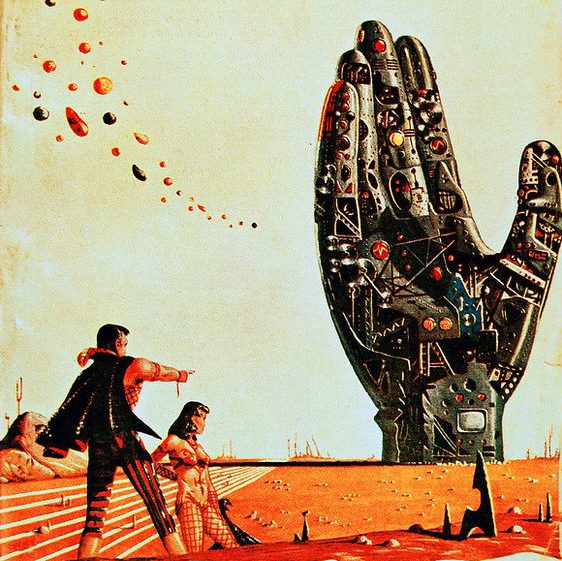In “Why Most Planets Will Either Be Lush or Dead,” David Grinspoon’s wonderfully lucid Nautilus piece about the Gaia hypothesis which was excerpted from his book Earth in Human Hands, the writer suggests that “once life has taken hold of a planet, once it has become a planetary‐scale entity (a global organism, if you will), it may be very hard to kill.”
We’re sure trying our damndest to off ourselves, what with a climate-change denier heading into the White House and China choking on its insta-modernity. It’s possible that even if “life as a whole persists” and our worst impulses don’t bring us to full species collapse, a global Easter Island, that scenarios could play out in which millions or hundreds of millions perish and quotidian existence is transformed into something harsh and traumatic. The survivors would be a scarred people on scarred earth. Just because humans have spent a couple million years or so as part of a feedback system that has seen life on the planet persevere doesn’t mean we can’t also turn out the lights.
From Grinspoon:
As far as we can tell, around the time when life was starting on Earth, both Venus and Mars shared the same characteristics that enabled life to get going here: They were wet, they were rocky, they had thick atmospheres and vigorous geologic activity. Comparative planetology seems to be telling us that the conditions needed for the origin of life might be the norm for rocky worlds. One real possibility is that Mars or Venus also had an origin of life, but that life did not stick, couldn’t persist, on either of these worlds. It was not able to take root and become embedded as a permanent planetary feature, as it did on Earth. This may be a common outcome: planets that have an origin of life, perhaps even several, but that never develop a robust and self‐sustaining global biosphere. What is really rare and unusual about Earth is that beneficial conditions for life have persisted over billions of years. This may have been more than luck.
When we stop thinking of planets as merely objects or places where living beings may or may not be present, but rather as themselves living or nonliving entities, it can color the way we think about the origin of life. Perhaps life is something that happens not on a planet but to a planet: It is something that a planet becomes.
Think of life as analogous to a fire. If you’ve ever tried to start a campfire, you know it’s easy to ignite some sparks and a little flicker of flame, but then it’s hard to keep these initial flames going. At first you have to tend to the fire, blowing until you’re faint, to supply more oxygen, or it will just die out. That’s always the tricky part: keeping it burning before it has really caught on. Then it reaches a critical point, where the fire is really roaring. It’s got a bed of hot coals and its heat is generating its own circulation pattern, sucking in oxygen, fanning its own flames. At that point it becomes self-sustaining, and you can go grab a beer and watch for shooting stars.
I wonder if the first life on a planet isn’t like those first sparks and those unsteady little flames. The earliest stages of life may be extremely vulnerable, and there may be a point where, once life becomes a planetary phenomenon, enmeshed in the global flows that support and fuel it, it feeds back on itself and becomes more like a self‐sustaining fire, one that not only draws in its own air supply, but turns itself over and replenishes its own fuel. A mature biosphere seems to create the conditions for life to continue and flourish.•



